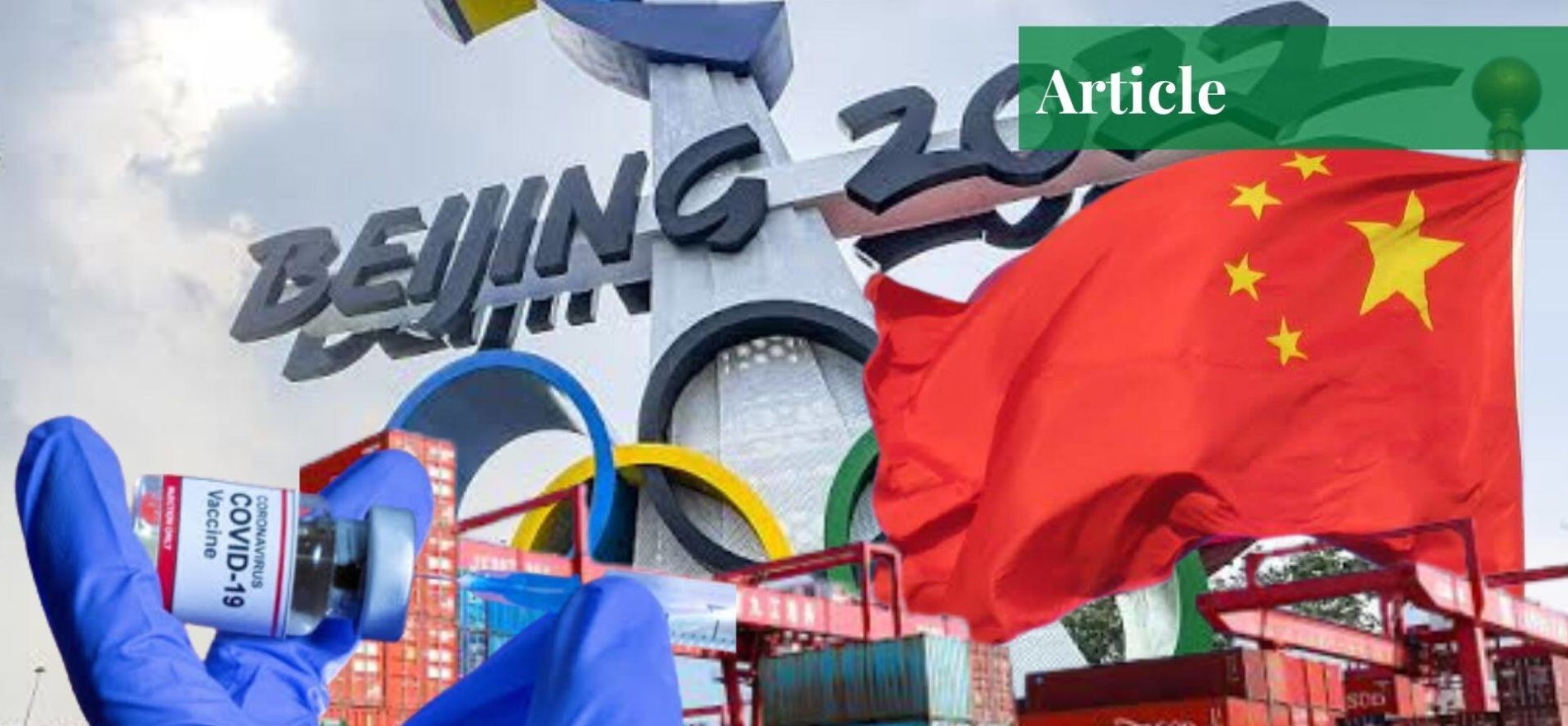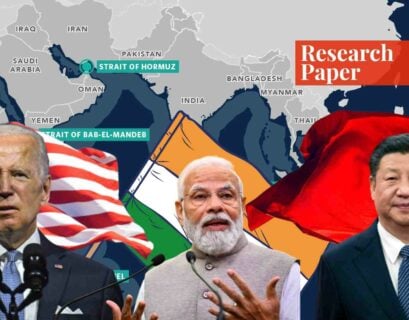Ms Zuha Tiwana is a psychologist, freelancer, and analyst. She can be reached at [email protected]
China’s Unfavorability & the 2022 Beijing Olympics
China’s hard and rigid diplomacy has badly impacted its image in the world in recent times. The new year, 2022, has stepped up international surveillance of the Chinese government’s infringement towards human rights. However, even before the 2022 Beijing Olympics, China’s soft power and global image have been hit hard.
Laura Silver, in one of her research works for Pew Research Center, explains, “the public image of China remains significantly negative in many countries of the world including, Australia and Japan.” In Australia, by the year 2010, the public had a very clear and positive image of China, however, today, after almost a decade, only about 20 percent of Australians have a positive image of China. Similarly, in Japan, only 10 percent of the population has a positive image of China.

Besides, a very clear boycott of the 2022 Beijing Olympics has been seen among many analysts and writers across the globe. The external, as well as internal elements, have expressed their anger and agony over China’s cruel diplomacy games. The negative projection of China is a very serious matter but the Beijing officials seem to be very carefree of the rising issue in the world.
A few months ago, Western human rights groups and some politicians urged countries to boycott the 2022 Beijing Winter Olympics, citing the Chinese government’s human rights violations. The United States became the first major power to initiate a diplomatic boycott, declaring that it would not send officials to Beijing two months before the Olympics. Other countries, including some European Union member states, may do the same.
Reasons for China’s Negative Projection
The rise of Beijing’s authoritarianism within the country, especially the strangulation of freedom in Hong Kong and the crackdown on the Xinjiang Uygur Autonomous Region, has offended many foreigners across the globe. In addition, the Belt and Road Initiative (BRI) projects started by China, in almost every continent, have also received negative coverage as countries have accumulated higher-than-expected debt. The case of Hambantota island in Srilanka and the US’ repeated remarks on the BRI and its debt trap policy can be considered as an example of this.
Furthermore, in many countries, the mistrust over the issue of the COVID-19 outbreak in China has been reported as biological warfare against humanity. The pandemic has downsized the economy of almost the entire world which includes countries like China, economic superpower, and even the prosperous countries of the West.
Besides, in recent years, China has adopted an increasingly intimidating and militant diplomatic style, called wolf warrior diplomacy, alienating neighboring countries. For instance, the cruelty of China towards Lithuania for allowing Taiwan to operate in its capital city, Vilnius, has been crushing for China’s global image.
This militant policy has made China a very negative country in the eyes of many. But instead of supporting the results and Chinese actions, Beijing’s increasingly aggressive approach has backfired in many countries. Lithuania, for example, has refused to agree to the Chinese bullying policy and the European states have supported it.
China and the World
Almost all the developed countries of Asia (such as Japan and South Korea), North America, and Western Europe, have shown that they have a very poor image of China. Not only have the public in these countries developed intensely negative views of China, but many of their governments are shutting down important Chinese initiatives. They have started to ban learning Chinese languages, arts, and cultures in their colleges and universities.
Moreover, in some countries, the negativity is less and controlled. Many Asian and African countries, like Thailand, Singapore, and Pakistan, which enjoy very close relations with China for decades, have responded more favorably to Chinese public diplomacy.
These states have, typically, not faced the more coercive side of Chinese diplomacy. China has also been very friendly and supportive towards states it considers friendly. In Africa, China has invested in some projects and people have developed a soft corner for the Chinese policies there.
Reprecussions for China
With the increase in negativity towards China across the world, many geo-political, geo-strategic, and economic problems have arisen for China. The European Union (EU) has put the investment agreements with China on hold, and the favor for the BRI projects among the European states has declined.
The Belt and Road Initiative (BRI) has also faced some issues of mistrust in Europe and outside, because of China’s wolf warrior diplomacy and the debates, especially by the US, on BRI being a trap of corruption and debt. The Sino-US ties have been the worst in the present time. The trade and competition for being the superpower has been damaged because of the declining image of China.
Efforts on Part of China
The Chinese leader, Xi Jinping, conveyed in a speech in 2021 that he wanted to curb warrior diplomacy and promote Beijing as a credible partner in the world. China’s large-scale soft power campaign over the last decade has also included the expansion of global state media in many countries. However, unfortunately, China’s state media has achieved minimal market share in the world. Very few countries have shares of the media industry in China.
In the field of health, China has donated the most vaccines for the COVID-19 pandemic, after the US, since the vaccines have been created. Many countries have rejected Chinese donations due to mistrust. For example Malaysia has not accepted Chinese vaccines because they consider them least effective for the patients.

Hurdles in Improvement
The Chinese analysts and the supporters of the wolf warrior diplomacy have not stopped promoting it and they believe that China should not change its increasingly aggressive stance, even if it results in a negative image abroad. According to them, China will prove to be an assertive and rising global power with its aggressive policies.
Moreover, the aggression also encourages the nationalism that already prevails in the Chinese nation. These hurdles have made it impossible for China to erase its negative image from the world which can have long-term repercussions for the country in the future.
Conclusion
The United States must remain vigilant against China’s efforts to cross the line of soft power to so-called sharp power, that is, efforts that secretly and often forcefully influence public discourse. It aims to limit freedom of expression, spread confusion, and distort the political environment of democracy.
Sharp power is an approach to international affairs that typically uses censorship or manipulation to undermine the integrity of independent institutions. Washington must let Beijing keep worsening its political image globally and in the meantime, must focus on rebuilding strong and long-lasting ties with other democratic partners in the world. China’s coercion and rigid policies will ultimately alienate more countries from it, impacting its soft power and benefitting the United States in the long run.
If you want to submit your articles, research papers, and book reviews, please check the Submissions page.
The views and opinions expressed in this article/paper are the author’s own and do not necessarily reflect the editorial position of Paradigm Shift.



















